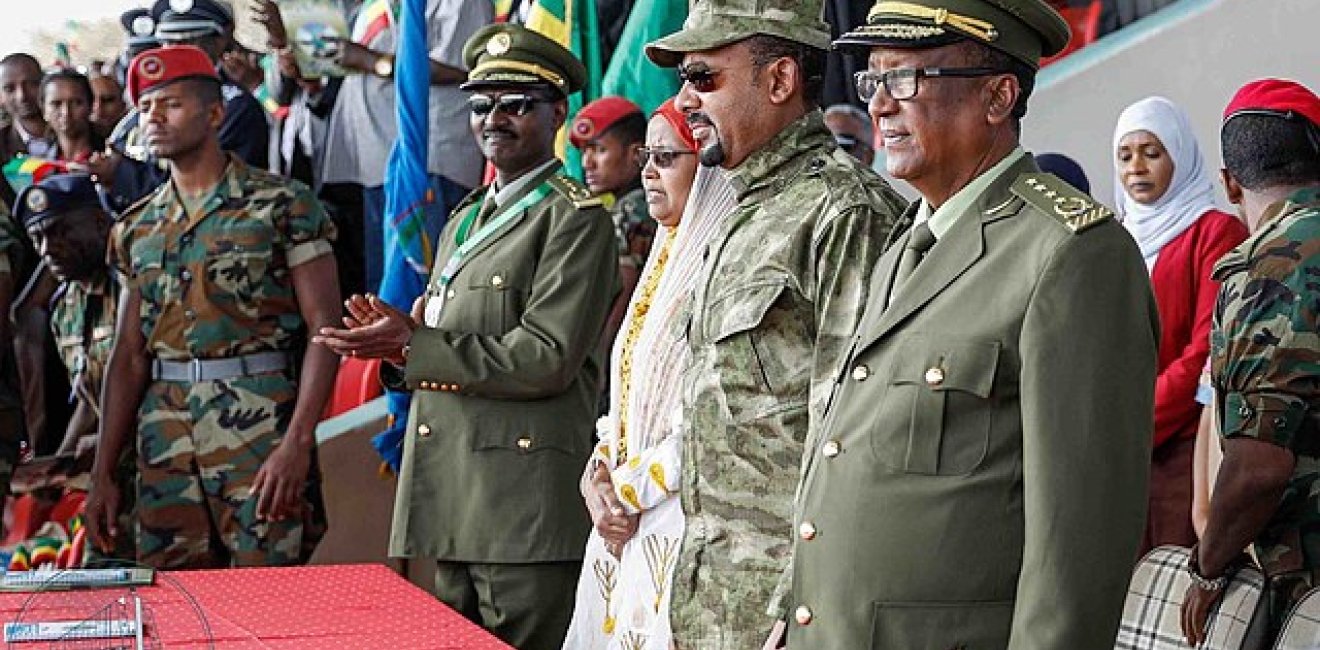
A blog of the Africa Program
Ethiopia has undergone some crucial political development since the ruling Ethiopian People's Revolutionary Democratic Front (EPRDF) coalition elected a new prime minister. Among other achievements, Prime Minister Abiy Ahmed ended a 20-year conflict with neighboring Eritrea, freed thousands of political prisoners, unfettered the media, and appointed women to 50 percent of cabinet positions. In addition to that, Parliament accepted his female nominees for president and head of the Supreme Court.
Electoral system reform could have a huge impact on the next Ethiopian national election, which is scheduled for 2020. For instance, following the reforms made by Prime Minister Abiy Ahmed, exiled opposition and separatist groups have returned home for peace. As part of such reform, Ethiopia's House of People's Representatives (HPR) approved Birtukan Mideksa, a former judge and opposition party leader as the new chairperson to lead the National Electoral Board of Ethiopia (NEBE). In addition to using automated systems, the government has assured that the upcoming general elections will be free, fair, and democratic.
For the last two decades, ethnic intolerance grew and gained momentum, and ethnic violence became a permanent fixture of Ethiopian politics. As a result, ethnic tensions and violence are on the rise. Ethnic conflicts are not new to Ethiopia, but the levels of violence witnessed today are very alarming. If the recent unrest in many parts of the country continues, it will adversely affect the upcoming election. In the past few months, ethnic clashes and protracted violence flared in most regions — Oromia, Southern Nations, Nationalities, and Peoples (SNNPR), Amhara, Tigray, Benishangul-Gumuz, and Somali regions — causing the death of hundreds of civilians and the displacement of some 2.8 million people.
Despite the Ethiopian government establishing two controversial commissions — the Boundaries and Identity Issues Commission and the Reconciliation Commission to deal with identity and boundary related tensions and conflicts — its efforts to address these conflicts are mostly reactive and have not, so far, produced lasting solutions. Some members of the parliament (MPs) aggressively challenged the constitutionality of the establishment of the Boundaries and Identity Issues Commission while some others passionately supported it.
Formerly exiled armed opposition and separatist groups have returned home following the government's declaration of amnesty, and invitation to participate in peaceful political activities. However, there is no clear agreement or strategy for employing a Disarmament, Demobilization, and Reintegration (DDR) program for former fighters, although there are ongoing negotiations. This could easily fuel violent clashes. Indeed, violent confrontations between these rebel forces and federal and regional government security forces have already been witnessed in parts of the Oromia region. Holding national elections in such an environment could exacerbate the existing tensions. It is also difficult to guarantee security provisions for political parties to campaign in these regions. Moreover, reform measures taken by the new leadership are generating high expectations among youth and could lead to resentment and unrest if left unmet. Youth employment presents a particular challenge for Ethiopia. About 73 percent of the country's population is less than 29 years of age. Approximately three million youth enter the labor force each year in Ethiopia. The National unemployment rate is 4.5 percent, urban unemployment is 6.5 percent, and rural unemployment is 2.5 percent. Ensuring productive employment opportunities in rural and urban areas has been a challenge, to achieve sustainable peace youth unemployment must be addressed as a top issue. As a result, a growing number of Ethiopian youth look for job opportunities, and without addressing such a pressing issue, a peaceful Ethiopia is unforeseeable.
Despite new leadership at the National Electoral Board of Ethiopia, the electoral commission will undoubtedly require time to transform itself into a truly neutral body capable of conducting credible, fair, and transparent elections. Currently, there are 81 fragmented political parties registered in Ethiopia, including parties that have recently returned from exile. Many of them have overlapping political-ideological orientations, agendas, and programs. However, there is no move for unification or the formation of three to four larger parties that could challenge the ruling party. The oppositions are not only fragmented but also engage in inter-party squabbles. A situation that has been exploited by the ruling party in previous elections.
Ethiopia's media landscape is dominated by state-owned broadcasters and government-oriented newspapers. However, since Prime Minister Abiy took office in April, the government has eased restrictions on independent media, permitting both greater freedom for journalists and a more diverse range of news for consumers. This is a good opportunity for all political parties to promote their respective programs. The media reforms offer a platform for all political parties to promote their respective programs; however, the difficulty still lies ahead for opposition parties with limited resources.
The lack of cohesion and division in the leadership of the ruling party could potentially undermine the political process and the efficacy of reform in the country. The rift and confrontation grow between the Tigray People's Liberation Front and the other three ethnically based parties that make up the coalition; this is also a possible challenge for conducting a peaceful and democratic election.
Thus, in addition to addressing violent ethnic clashes, the importance of youth resentment — mainly due to unemployment — the guarantee of an independent media and democratic institutions, including the judiciary, the NEBE, and the security services — cannot be overstated, especially ahead of the scheduled 2020 elections.
Getachew Zeru is an Assistant Professor at the Institute of African Governance and Development at Ethiopian Civil Service University, Addis Ababa, Ethiopia. He was a former Southern Voices Scholar Network for Peacebuilding in spring 2015.
Author

Lecturer, Institute for Peace and Security Studies, Addis Ababa University

Africa Program
The Africa Program works to address the most critical issues facing Africa and US-Africa relations, build mutually beneficial US-Africa relations, and enhance knowledge and understanding about Africa in the United States. The Program achieves its mission through in-depth research and analyses, public discussion, working groups, and briefings that bring together policymakers, practitioners, and subject matter experts to analyze and offer practical options for tackling key challenges in Africa and in US-Africa relations. Read more

Explore More in Africa Up Close
Browse Africa Up Close
The Innovative Landscape of African Sovereign Wealth Funds



